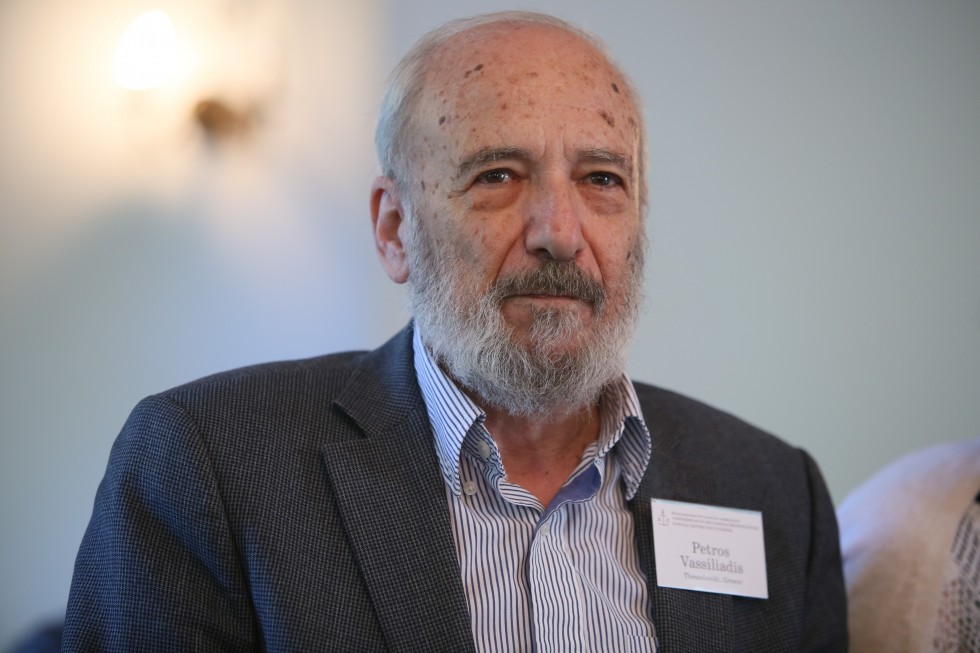Greeting Message from Professor Petros Vassiliadis, President in Honour of CEMES

My warmest greetings to Fr. George, Rector of St. Philaret’s Christian Orthodox Institute, as well as all its faculty and the members of my beloved Transfiguration brotherhood, on the Assembly Day of their patron Saint, St. Philaret, Metropolitan of Moscow.
With great joy and scholarly satisfaction, I was informed that this year’s Assembly Day, November 19, 2019, dedicated to this great hierarch of the Russian Church and important saint of our Orthodox Church, will focus on his contribution to the biblical – and to some extend liturgical – renewal of our Church. If during the 19th century the least a responsible pastor and ecclesiastical leader could do was to make the word of God, through the translation of the Bible into Russian, available to his faithful into a language they can understand, nowadays, in the 21st century, the progress of the biblical scholarship is the least we can do to follow his legacy.
There are two elements that constitute the most urgent desiderata for the renewal of our contemporary Orthodox ecclesiastical life. And these two constitutive elements are what in fact substantially distinguish the essence and character of the Church from a legalistic secular institution (a result mostly of western scholasticism) and redefine her as a charismatic mystery, a "body of Christ", "people of God" and "communion of the Holy Spirit". These elements are: (a) the rediscovery of the word of God, of the gospel of Christ, recorded in the Bible, the matrix of Orthodox theology and life, scientifically of course validated and authentically interpreted; and (b) the rediscovery of the real and authentic meaning of the "Eucharistic event." These elements are known in the scientific field as "biblical" and "liturgical" renewal respectively.
The keynote address by Gleb Yastrebov “On the Development Paths of Contemporary New Testament Studies,” touches one of the cornerstones of our Church’s missional responsibility, the biblical renewal. And SFI’s achievements , most notably in the series of ecclesiological conferences, which will be presented by the Vice-Rector for Academic Affairs, our colleague Larisa Musina, touches the other cornerstone, the liturgical renewal. Especially at a period in which your official Church has just rejected the idea of the minimum of an Orthodox liturgical renewal, the translation of the liturgy, even as an assisting measure that would certainly help the faithful comprehend the riches of our liturgical tradition.
Being one of the translators of the Bible into modern Greek, undergoing similar ordeal and reactions like St. Philaret, and instrumental in the setting up of the Synodical Commission on Liturgical Renewal of the Church of Greece, I feel more than privileged to be kindly requested to serve as a member of SFI Board of Trustees.
On behalf of my colleagues at the Center of Ecumenical, Missiological and Environmental Studies (CEMES), dedicated to another holy and pioneer hierarch, Metropolitan of Thessaloniki Panteleimon Papageorgiou, of blessed memory, and as the Director of the Inter-Orthodox Post-graduate Master Program on “Orthodox Ecumenical Theology” (MOET), which will eventually start this coming Spring Semester, also in a distance-learning form, I wholeheartedly send my greetings to the organizers and all the participants of this year’s Assembly Day of SFI.
Emeritus Professor Petros Vassiliadis
President in Honour of CEMES
Director of MOET of IHU, and
Member of SFI Board of Trustees
